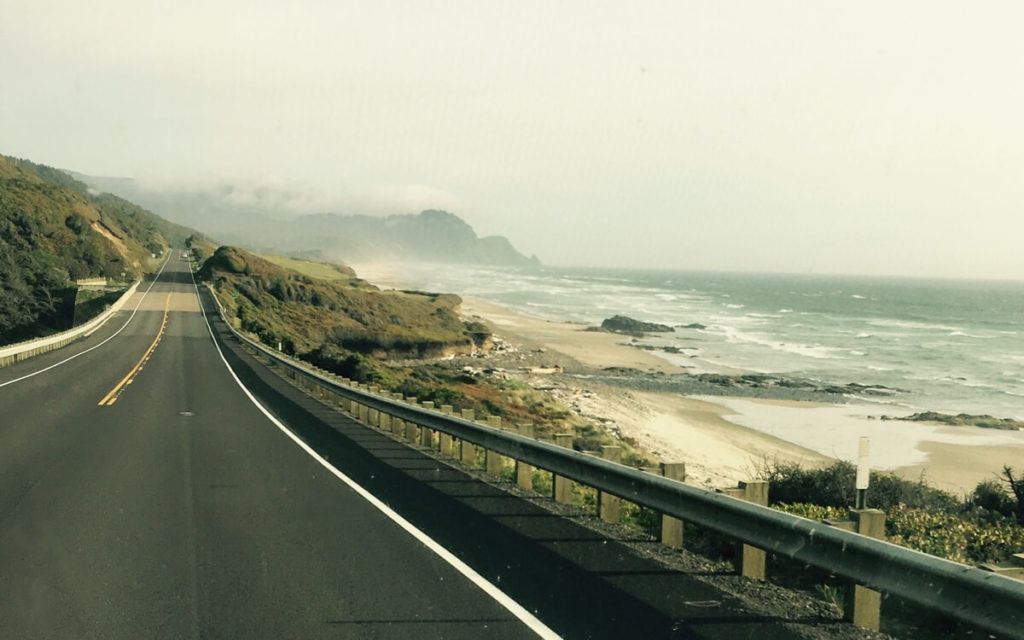
Shame Isn’t a Signal to Cram More Into Your Schedule
Why aren’t I working on this project? Why aren’t I doing more writing, getting up earlier, chipping away at this backlog of work that I know is essential?
I don’t really know.
But I do know that I’m ashamed of it. I’m carrying around a constant low-level shame about how I spend my time. Time shame.
And my time shame seems to linger even on days that are open and unscheduled–light days at work, vacations, even weekends. There is still this sense of time pressure as if there is this ideal schedule out there somewhere, and I need to catch up to it.
"Productivity" is training me to see all my days like a suitcase too small for everything I want to carry. Share on XI know this is partly because I’m training myself to feel this way on my busiest days. It feels productive to respond to tons of emails, check things off the list, and get more done than I thought was possible on a crowded day. But that’s also training me to see all my days like a suitcase too small for everything I want to carry.
So once I see my schedule as something I need to overcome, then waking on days without a pressing agenda, I feel a need to search for one. With nothing planned, the weekend seems suddenly short–almost over–and already slipping away.
If there’s an opposite to “flow”–that great feeling of time dilating and expanding when you’re engaged and working on something meaningful–this is it. The slow-boil schedule panic.
This is why road trips are so magical. For a long stretch of time, we’ve blocked off time to both do something (drive) and to do nothing. Road trips let us just be without the nagging question of what we should be doing. Time can dilate safely, within bounds. Road trips are free of time shame.
Swap “road trip” for “alcohol,” and you’ll have some sense of the place drinking held for me. Drinking carved out a place in time for me. Quiet, but intoxicating.
Shame was a big part of why I quit drinking. Kristi told me that she quit because she was tired of waking up every day ashamed: I heard that like a gunshot. Like I’d just learned the name of my rival. I like to think that shame is what I quit when I quit drinking. And that’s mostly true. However, there is still this background shame sifting around me. They say “avoidance” is a classic alcoholic strategy, and that you may still use those strategies long after you’re no longer drinking. I do, and I think avoidance, in particular, is part of time shame. Avoidance and deferral.
Doing Less
Time shame seems natural because we imagine that we’re supposed to feel pressure to be doing things. It seems the proper opposite of procrastination: a natural reaction to ambition and to the fact that our time here is short. At our moments of peak shame, we feel like we’re finally seeing things clearly: time IS short, after all.
But instead of cramming more into our schedule in proportion to the shame we feel, the authentic response is setting aside the things that don’t matter. A focused doing-less, purposefully turning toward what’s most important. Time shame is the feeling that everything is important: that I’m supposed to be doing all of it. And because I’m not, I’m ashamed.
“Doing less” is the antidote to this particular form of shame.
Shame isn’t a signal to cram more into your schedule; it’s a sign to Do Less Share on XNot everything is important. For most folks, it’s just one thing. And most of us already know what one thing is most important. We don’t need to go on a retreat to find it. It’s already pulling at us and is often the very backdrop of shame. We know our time is short; we just have a hard time acting that way consistently.
Defend Your Time
Take the road trip as your model for consistently working on what’s most important. The road trip works because you’ve blocked off time to drive and essentially put up defenses that make it hard to do anything else. This creates an environment where you’re not always asking yourself what should you be doing. You’re committing yourself to the road for X hours, regardless of how you feel about it.
Blocking off time to work is similar: you don’t have to be in the mood for it or psych yourself up for it. When the blocked off time starts, you stop doing everything else.
Of course, sitting down to actually work is often accompanied by an anxious impulse to check in on everything. I look over my projects, my inbox, texts, and my calendar to make sure I can really go dark for a couple of hours. That I’ve earned going dark. This background anxiety about my time really gets in the way: sometimes I don’t even block off time in the first place because shame is telling me that I’m too far behind.
This is where my calendar helps. I do (quickly) look around: I check in on the calendar to see that yep, I’ve blocked off this time. I see my other commitments there, and I know there’s enough time allocated for them as well. I’m reassured. Time shame fades for a bit. When this is working well, it’s almost like another sense: knowing where I stand with my schedule, much like your body just knows where it stands in space or how far it is from someone else on the bus.[1]
Using your calendar this way is a virtuous circle. The more accurately your calendar depicts your commitments, the more confident you’ll be blocking off time to work.
Blocking off time, working on what’s most important, and doing less are strategies to defy time shame. At first, you fake it: act as if the shame’s not there. And eventually, it fades.
Notes


The shame from not doing enough has defined most of my professional life. But I just turned 70 and I’m working balls-to-the-wall, and I slowly realize I’m experiencing the obverse: I’m frittering away an increasingly finite actuarial reality on commitments and work, and I’m a shame-shifter: I’m ashamed I’m not doing less.
I need to start road-tripping before life takes my keys away.
Glad I found this! Get thou to Hobuck
Great post John, Thx! Managing time is my most challenging task these days.
John